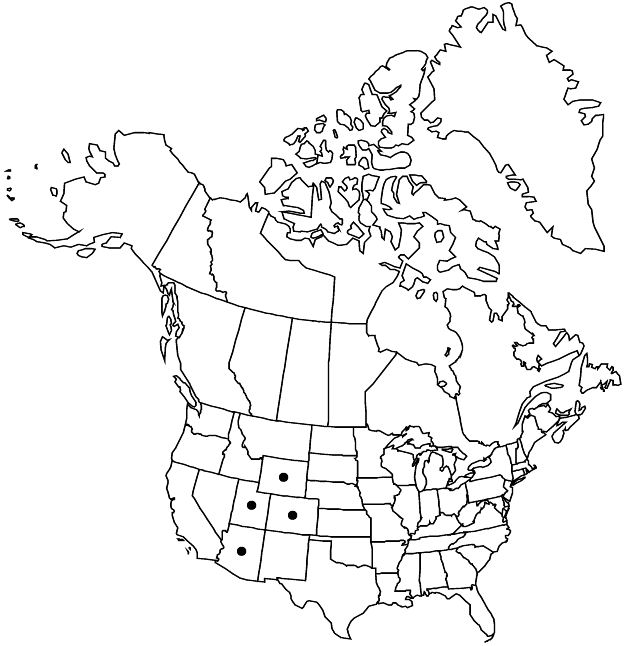Glossopetalon spinescens var. meionandrum
in A. Gray et al., Syn. Fl. N. Amer. 1: 401. 1897.
Shrubs, 25–65 cm. Branchlets often ± ascending, turning from grayish green to yellowish brown toward end of 2d or 3d year (sometimes earlier), glabrous or sparsely to moderately puberulent (especially near nodes). Leaves mostly well developed at flowering and tardily deciduous, branches appearing leafy during most of growing season; stipules present, sometimes difficult to observe, adnate portion yellowish or brownish tinged, often poorly developed, slightly thickened, free portion relatively poorly developed, usually triangular to narrowly triangular, sometimes subulate, 0.2–0.5(–0.8) mm; largest blade 7–15 × 2–4 mm, margins ciliolate or eciliolate, glabrous. Petals 4–6 mm, mostly widest near apex, apex rounded or abruptly acute to short-acuminate, tips blunt or sharp. Stamens 5–7, equal or subequal.
Phenology: Flowering Mar–Jun.
Habitat: Rocky slopes, crevices and ledges of limestone, shale cliffs and outcrops
Elevation: 1600–2300 m
Distribution

Ariz., Colo., Utah, Wyo.
Discussion
Selected References
None.